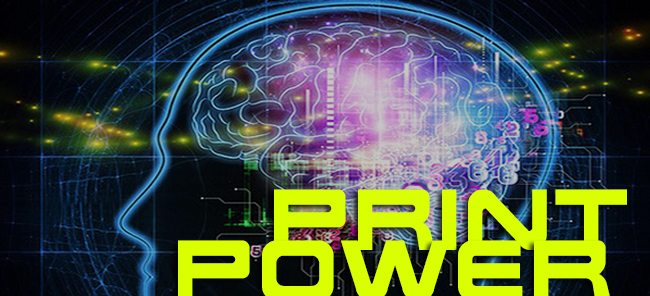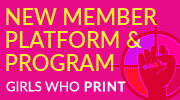
How Print Advanced Civilization and Expanded the Human Mind
The famous Wendell Phillips wrote, “What gunpowder did for war the printing press has done for the mind.” From books, to articles, to theories, to how people view the world and life in general, civilization as it is today would be far different without the influence of print.
The fact is that printing has always been a driver not only in the way we think, but in the things we think about as well. Much like the internet today, print has always been viewed as a vehicle for freethinking and social change. After the invention of the printing press, the information being sent out to the masses became difficult to regulate. People, who had before been uneducated and learned only from the church, were becoming more literate and starting to think for themselves. Historians to this day will argue that it was the first real switch of power from the Roman Catholic Church to the people.
Studies show that print holds certain powers over the human mind that the digital world does not. In the first part of this series the effects that sensation has on our brains was briefly touched upon (no pun intended). Print has a direct influence on all of our senses. When a person reads, they experience. Experience is the key to knowledge. Knowledge is the key to power. Remember The Never Ending Story? Stories have the power the transform us, this is true; but, print gives those stories the power to do so. Albert Einstein said, “Imagination is everything.”
It isn’t just in mind and imagination that print changed civilization. It was in communication, socialization, and economical advancements as well. Consider how the economy would have progressed without print? Packaging and direct mail campaigns grew the economy. Consider the westward moving America, the expansion of farms and population into rural areas. How would we have reached them if not through direct mail? In this way print plays a central role in the history of economic growth.
There is an amazing article written by London’s Professor and Economist Jeremiah Dittmar published on Voxu.org (you can read it here). In this article Dittmar explores the impact of the printing press on development and growth of the modern city. He explains:
The printing press was one of the greatest revolutions in information technology. The impact of the printing press is hard to identify in aggregate data. However, the diffusion of the technology was associated with extraordinary subsequent economic dynamism at the city level. European cities were seedbeds of ideas and business practices that drove the transition to modern growth. These facts suggest that the printing press had very far-reaching consequences through its impact on the development of cities.
In these ways you can see how dynamic and intricate of a knot there is between print and civilization. Our minds have traveled farther than ever before because of print. Our cities have grown larger. The technology to print has opened the horizon. Its power is undeniable, its effects are remarkable.
I hope you will stop by next month for Part III, Print in the Marketing of Yesterday and Today.
 Jennifer Grace is a proud to be millennial who works as a Sales & Marketing Specialist at The Dingley Press. Dingley specializes in catalog printing and Jen is lucky enough to be stationed in the manufacturing facility where the presses run 24/7. When it comes to print and catalogs, one thing is for sure, Jen does not lack enthusiasm. To read more of her articles you can check out Dingley’s blog site or connect with her on Twitter, LinkedIn, and Facebook.
Jennifer Grace is a proud to be millennial who works as a Sales & Marketing Specialist at The Dingley Press. Dingley specializes in catalog printing and Jen is lucky enough to be stationed in the manufacturing facility where the presses run 24/7. When it comes to print and catalogs, one thing is for sure, Jen does not lack enthusiasm. To read more of her articles you can check out Dingley’s blog site or connect with her on Twitter, LinkedIn, and Facebook.











